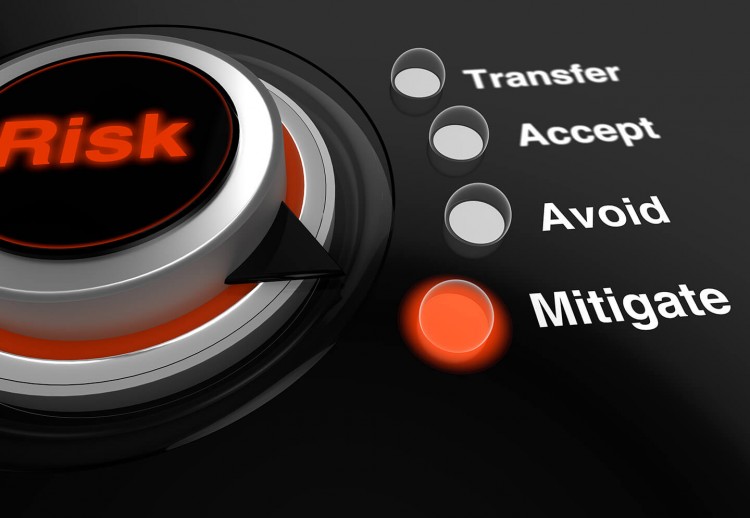
Essential Tips for Reducing Risk in Your Business Exit Strategy
By Generational Equity
10/04/2017
Risk: the four-letter word that most business buyers loath above all others.
Whenever you buy something, you are taking a risk. Whether it’s something significant like a new home or car, or your weekly trip to the grocery store, you buy with the belief that what you purchase will fulfill your needs.
Of course, the more expensive the purchase, the more effort you will take to minimize the risk associated with it. For your groceries, it could be as simple as checking the sell-by dates. For your car, you would take it for a test drive, read user reviews and interrogate the dealer to ensure you won’t end up in a cloud of smoke on the freeway.
For business buyers, whose purchases could be worth millions of dollars in the middle-market, reducing risk is vitally important. If you are thinking about creating a business exit strategy, be it now or in the coming years, rest assured that professional buyers will assess any risks with a fine-tooth comb. Their attentive due diligence process will expose any concerns in your company – concerns that you might never have even considered.
What is Considered a Risk for Business Buyers?
For instance, say your company's main customer represents 45% of your revenue. Why would that worry a potential buyer? Surely that demonstrates that your business provides great customer service, can forge lasting bonds with clients and has helped increase revenue in the last five years.
But think about this from a buyer’s view – what if the customer has a strong personal relationship with the current owner? Would a change in ownership cause the customer to withdraw, leaving the business with a gaping hole in revenue?
This might not be something you have considered being at the heart of your company’s growth. The support of a professional M&A advisory firm like Generational Equity will help you become more aware of the risks in your business, helping you build a buyer-ready company for your eventual exit.
Certainly, the acquisition of any privately held company carries with it a certain level of risk and uncertainty. Unlike their public counterparts, privately held companies are not required to disclose anything publically and therefore, buyers are relying to a great degree on information voluntarily given to them by a seller. However, based on our years of experience, if you follow the guidelines below, you will make great strides in giving buyers confidence in your company’s future.
Five Ways to Reduce Risk for Business Acquisition
To get you started, here is just a small sample of potential risks for business buyers and how you might choose to respond to them.
1. Business Diversity
As mentioned in the example above, focus on diversity in your client and supplier base. Companies that rely on one or two major customers or suppliers raise huge red flags for buyers. They need reassurance that your margins will grow after you’ve released the reins – potentially losing a key customer will damage that.
Top Tip: Create compensation plans that give incentives to your salesforce to regularly reach out to new customers, rather than become complacent on a few contracts for their income.
2. Owner Dependence
We have covered the effects of owner dependence on company valuation in a previous insight. What you need to know is that buyers acquire the future of your business, not what made it successful to this point.
Top Tip: Consider including a period of transition under your direction as part of your business exit strategy. A consultancy role will reassure the buyer that they will have time to understand your approach and continue to grow the business.
3. Financial Reporting
In a buyer’s due diligence process, they will expect to receive in-depth records of your company’s financials, as well as projections for the next three-to-five years. Buyers will be concerned if you display any hesitation over your business finances.
Top Tip: Financial reporting is key to any successful business sale, so we would recommend hiring independent financial advisors to comb over your data to identify any areas to improve before you enter the market.
4. Consistent Revenue
If your revenue is constantly fluctuating, buyers will be concerned. Especially if the buyer doesn’t understand your industry, it can be daunting to not rely on a steady stream of revenue.
Top Tip: Set your sales team to work finding reliable, dependable customers and sign them up to long-term contracts.
5. Future of Your Industry
Do you know what the future holds for your industry? Buyers will conduct their research and will find any potential disruptors to the market that could damage your business in the short or long-term.
Top Tip: Our M&A professionals at Generational Equity have a strong and varied understanding of industries throughout North America, so we can offer effective guidance on when to take advantage of the market to sell your business.
These tips should help you reduce risk associated with your company in the eyes of buyers, bringing you one step closer to exiting your business for the optimal value.
Are you worried about the risks your business presents to buyers? We can help you determine strategies to ease these at our complimentary executive conferences. Held across North America, these conferences provide an in-depth look into the M&A process. It takes just a few hours of your time, but could be the difference between achieving the optimal exit deal and leaving cash on the table.
Learn more about the Generational Equity approach to selling a business on our website, or you can reach us at 972-232-1121. Our professional advisors can answer any questions you may have to help you take the next step on your exit journey.



